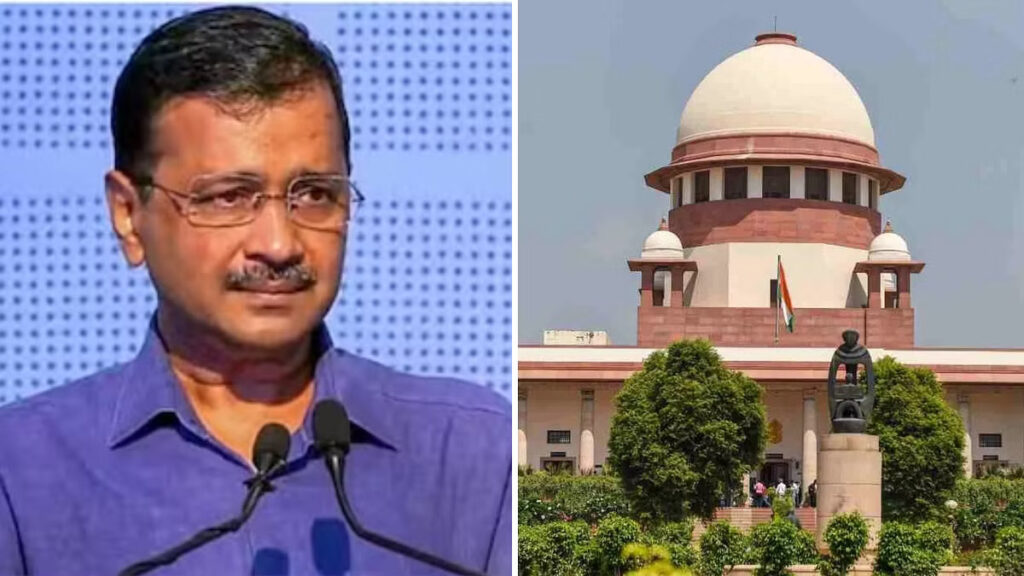Rehan Khan
Delhi Chief Minister Arvind Kejriwal has approached the Supreme Court, seeking bail in a corruption case related to the Delhi excise policy, in which the Central Bureau of Investigation (CBI) has portrayed him as the alleged “mastermind.” Kejriwal’s plea challenges his arrest and remand orders issued by the CBI, following a recent Delhi High Court judgment that upheld the legality of his detention.
On August 12, 2024, Kejriwal’s legal team, led by Senior Advocate Abhishek Manu Singhvi, mentioned the matter before Chief Justice of India D.Y. Chandrachud, requesting an urgent hearing on August 13. In response, the CJI advised Kejriwal’s lawyers to send an email, emphasizing the urgency of listing the matter.
Background of the Case
Kejriwal was initially arrested by the Enforcement Directorate (ED) on March 21, 2024, in connection with money laundering allegations arising from the excise policy case. The ED claimed that there was direct evidence of Kejriwal’s involvement, including a demand for ₹100 crores that allegedly funded the Aam Aadmi Party’s (AAP) election campaign in Goa. Despite his bail in the ED case, Kejriwal remained in custody due to a subsequent arrest by the CBI on June 26, 2024.
The Delhi High Court had previously dismissed Kejriwal’s plea against his CBI arrest on August 5, advising him to seek bail from the trial court. However, Kejriwal contends that his arrest by the CBI was an “insurance arrest,” strategically planned after the Supreme Court granted him interim bail in the ED case on July 12. Singhvi argued that the arrest was an afterthought, intended to keep Kejriwal behind bars despite the apex court’s order protecting his rights to life and liberty.
Legal Arguments
Singhvi emphasized that the liquor policy in question was not solely approved by Kejriwal but also by the then Lieutenant Governor Anil Baijal and other bureaucrats, raising questions about the selective targeting of the Chief Minister. He further criticized the CBI’s arrest as being based on presumptions and hypotheses rather than concrete evidence.
On the other hand, the CBI, represented by Special Public Prosecutor D.P. Singh, maintained that Kejriwal was the “sutradhar” (mastermind) of the entire scam and that there was direct evidence linking him to the alleged corruption. The agency argued that Kejriwal’s influence could potentially sway witnesses and derail the investigation, justifying his continued detention.
Ongoing Proceedings
Kejriwal’s petition before the Supreme Court not only challenges the Delhi High Court’s order but also questions the necessity and timing of his CBI arrest. The apex court had previously referred a related question regarding the need or necessity of arrest under Section 19 of the Prevention of Money Laundering Act (PMLA) to a larger bench, indicating the complexity and significance of the legal issues involved.

